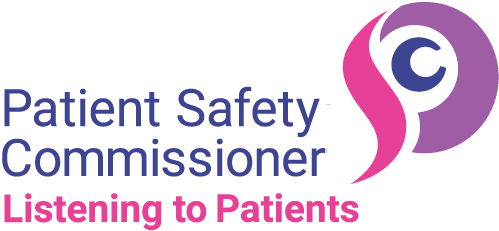
Getting it right for the most vulnerable means it is better for everyone. This applies as much to improving patient safety as anywhere else. We need to identify harmful events and put controls and systems in place to prevent them.
Key to this is embedding informed and shared consent to help counter the power imbalance between patients and healthcare professionals in which the patients lack the power. This power imbalance is seen more acutely when the patient comes from a disadvantaged group. And a culture of psychological safety is key to offsetting this.
Also needed is a means of ensuring that all systems are equitable from the Patient Safety Incident Response Framework through Yellow Card reporting. The work of NHS Resolution, the Health Service Safety Investigation Body and the Parliamentary and Health Service Ombudsman must be seen through the lens of Core20PLUS5, NHS England’s initiative to reduce health inequalities.
It is important that integrated care systems work hard to proactively identify their Core20PLUS5 populations. The Core20 are identified using the Index of Multiple Deprivation. The PLUS population group are those, like inclusion health groups, who may be missing from traditional datasets and must be identified through local population insights and intelligence. Tailored healthcare approaches should then be applied to these population cohorts focusing on the biggest drivers of health inequalities, the five clinical focus areas (maternity, severe mental illness, chronic respiratory disease, early cancer diagnosis and hypertension) as well as smoking cessation, which is a cross-cutting theme.
The role of the Patient Safety Commissioner is focusing on equity in medical devices, an issue that was highlighted during the Covid pandemic. We know that pulse oximeters are less effective in patients with darker pigmentation and skin tones and this was recently confirmed by the Whitehead review of equity in medical devices. Dame Margaret Whitehead also warned that the advance of artificial intelligence in medical devices could bring great harm through inherent bias against certain groups in the population. Less testing of devices is carried out in women and studies do not always disaggregate data based on gender or race, so it is not clear if there are differential outcomes.
We will only be effective in improving patient safety for everyone if we listen to patients who are seldom heard. Their voices need to be incorporated into governance, using the new Patient Safety Partner role, who themselves need to come from a wide demographic.
Recently NHS England’s Medicines Optimisation Executive Group approved the establishment of a quality improvement programme with the aim of supporting integrated care boards to plan for, improve and assure the safe use of valproate, used for epilepsy and bipolar, for patients who choose to take it, and for whom it is clinically appropriate. We look forward to delivering this programme.
We will only achieve exceptional quality healthcare for all through equitable access, excellent experience, and optimal outcomes by listening hard to the voices of all patients at all stages of the design and delivery of healthcare.
Professor Bola Owolabi, Director of the National Healthcare Inequalities Improvement Programme at NHS England and Dr Henrietta Hughes OBE

